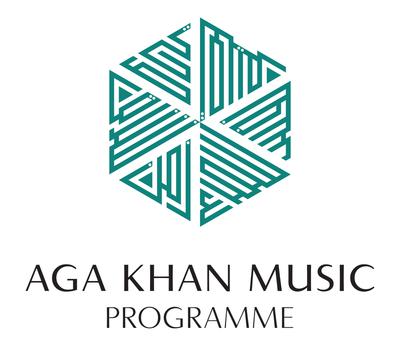
Ustatshakirt Ensemble
Ustatshakirt Ensemble
Join five members of the Ustatshakirt Ensemble from Kyrgyzstan for an evening of traditional music and song. They form part of the Ustatshakirt Centre, which was founded by the Aga Khan Music Programme to train a new generation of top Kyrgyz musicians. The Ensemble has appeared at many festivals and venues across East and Central Asia and in Europe, but this is a rare chance to catch them in Scotland.
Hear the multi-instrumental players perform on traditional instruments such as the kyl kiyak (two-stringed fiddle), the temir komuz (jaw harp) and the sybyzgy (end-blown flute). This lively performance promises to combine buoyant, melodious singing with rich musical timbres and fast-paced rhythms.
This concert is presented and curated in partnership with the Aga Khan Music Programme.
Supported by Sir Ewan and Lady Brown together with Flure Grossart.
This concert was curated in partnership with the Aga Khan Music Programme.
You might also like
Programme
Traditional melody “Chiybyldynyn kyzynyn koshogu (Chyibyldy’s daughter’s lament)
Erlan Kasabolotov, Choigono Choor
Daughter of Chaybyldy lamenting her deceased father, popular hero and main character of a traditional epic poem.
Traditional ritual tune-Koshok koshuu (Lament for the deceased)
Makhabat Kobogonova
Traditional tune expressing sorrow for the deceased, reflecting on good deeds of the past and praising strength of the faithful enabling them to overcome obstacles with patience, kindness and perseverance.
Traditional tune-Eki nogoi ayrylysh (A clan divided)
Emil Ishenbek uulu, Kyl-kyak
Nogoi, grand-grand-father of the Kyrgyz epic hero Manas, gave his name to the whole Manas’ clan. Part of Nogoi clan left Altai to settle in Talas, which the music piece refers to.
Excerpt of Manas epic poem
Samat Kochorbaev, Narrator, accompanied by ensemble
After Manas’ death, his widow Kanykei takes her small son, a baby, to Bukhara to join her family home.
Traditional tune-Kanykeidin armany (Sorrow of Kanykei, Manas’ widow)
Ensemble Performance
Traditional ritual tune “Zhar saluu (Solemn announcement of a gathering)
Traditional poets-improvisers
[akyns] Emil Ishenbek uulu and Bek Alagushov
Akyns, traditional Kyrgyz poets-improvisers solemnly announce a big public celebration.
Kosh kairak (Playing together)
Performed by ensemble on jew harps, temir ooz komuz, zhyghash ooz komuz
Nurlan Nyshanov, Composer
Kyrgyz performers traditionally played instrumental solos. Nurlanbek Nyshanov, influential Kyrgyz music educator and pioneering composer who greatly influenced Ustatshakirt ensemble, brings together both wooden and metallic jaw harps in this piece.
Ak tamak, kok tamak (White neck, blue neck (birds)
Atai Ogonbaev, Composer
Bek Alagushov Peformer, on komuz
Birds’ couple, white-throat and blue-throat, living in Talas, a colder area of Kyrgyzstan, compete in singing to decide whether they should stay back home or move to warmer areas.
“Chaikama [Tea-shake]”,
Toktogul Satylganov, Composer by
Emil Ishenbek uulu, Performer, on komuz
Chaikama is a melody inspired with traditional tea drinking ceremony in Kyrgyzstan, when there’s still some tea left among the leaves, and the teapot is shaken to get the remaining liquid out. The rhythm of the tune shakes and rocks just like the teapot.
Top zhylky (String of horses),
Said Bekmuratov, Composer
Makhabat Kobogonova, Performer, on kyl-kyak
Music piece describing horses running free in mountain pastures.
Traditional tune “Zhorgo zhurush (Pacer horse ride)
Ensemble Performance on metallic and wooden jew harps, temir ooz komuz and zhygach ooz komuz
A description, in melody and rhythm, of pacer horses’ ride and competition
“Guzal kyz [Beautyful girl]
Barpy Alykulov, Composer
Samat Kochorbaev, Performer, vocals, komuz
Lyrical song praising the beauty of beloved girl.
“Zhylkychy [Heardsman]” by Taalai Beisheev
Ensemble Performance
Music piece describing the life of a herdsmen.
“Kuu aytysh”, based on “Kara ozgoi [Joyful tune]”
Niyazaaly Boroshev, Composer komuz
Emil Ishenbek uulu and Bek Alagushov Soloists
Traditional performers’ competition “Kuu aytysh”, based on the tune “Kara ozgoi”, serving for the improvisers to showcase their virtuosity and technique.
“Sanat yry [Admonition]”
Arstanbek Buylash, Composer
Performed by ensemble
A poetic call for good deeds and for respect of environment, a message from wise poets trying to pass a message in music across generations.
Traditional tune “Koychulardyn komur kuu [Shepherds’ tune]”
Performed on wind instruments with ensemble accompaniment
Music piece inspired shepherds’’ everyday life.
Excerpt of Manas epic poem
Samat Kochorbaev, Narrator, accompanied by ensemble 16:00
Semetei as a grown-up strong warrior returns to his homeland with his mother Kanykei and has his old stallion Tai Toru run in a horse-riding competition. Kanykei hopes for the win, expecting spirits of deceased heros such as Manas and others to encourage Semetei to stay in his homeland, taking his father Manas’ inheritance. In case the horse loses, Kanykei and Semetei ae to return back to Bukhara.
Mash botoi (Lament tune improvisation)
Atai Ogonbaev, Composer
Performed by ensemble, followed by poetry recitation
Botoi is a Kyrgyz traditional music lament. The tune depicts camel cow’s sorrow after a calf death. The current arrangement is its upbeat interpretation in major key, brightening up its original mood for outsiders’ audiences’ pleasure
